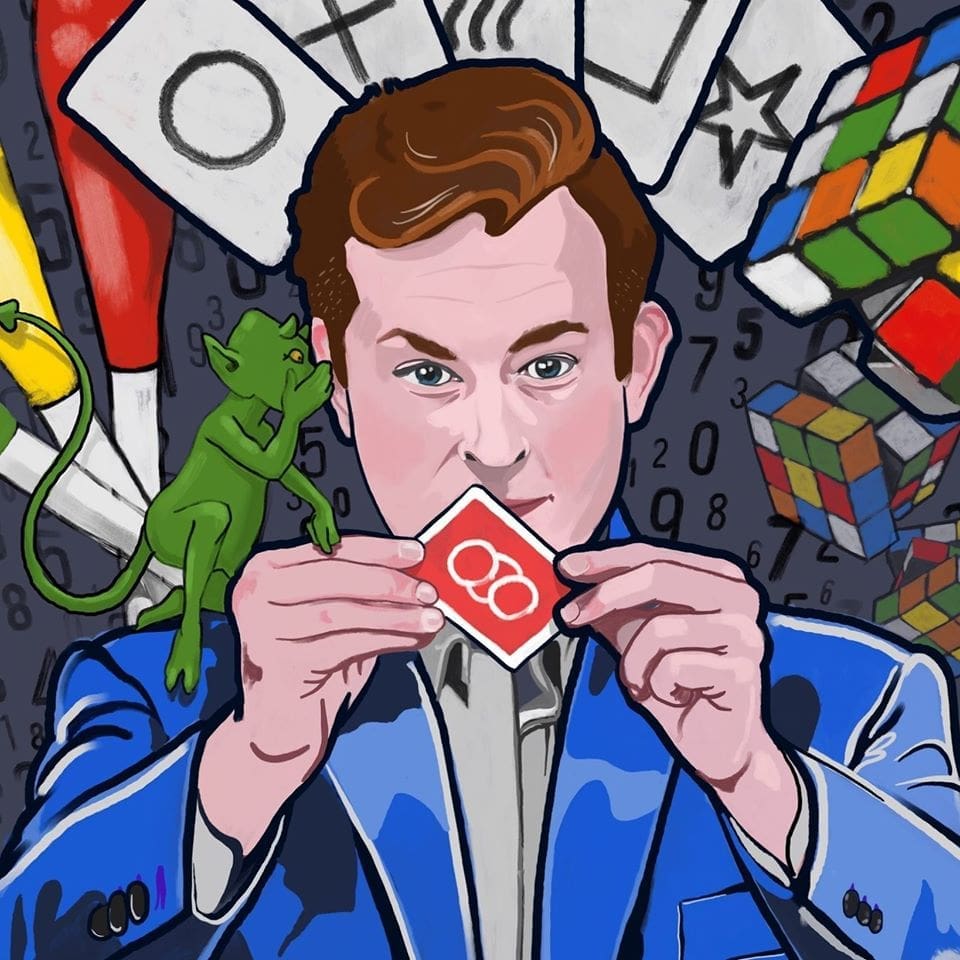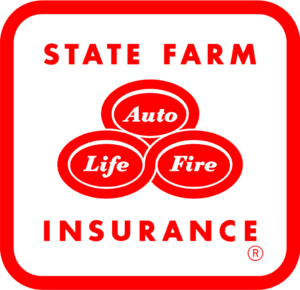What I Learned About Personal Branding When I Picked My Stage Name
Maybe you don't need a stage name. Maybe you don't have thousands of fans who want to track down where you live. Maybe you don't want to create an entirely fictitious persona for fun & profit.
But here's why you should still care about branding.
Branding isn't something only companies should think about. Anyone interested in getting more out of life should think about their branding, and here's why.
Personal branding allows you to take the lead in how people see you. It allows you to control the narrative others use when talking about you (and if you brand correctly they will be talking about you). If you craft a distinctive brand, you can position yourself as an expert in your field instead of being just another person who does the same thing as everyone else.
About 8 years ago I was the tour manager for Brian Brushwood. One late night after a show we were talking about showbiz and I said, "I should come up with a stage name."
That's the instant everything changed.
I didn't realize it at the time, but what started with that one idea was the beginning of crafting my own brand. Taking ownership of how I choose to present myself to the world has improved my business, established my career, and even helped in my personal life.
Here are the lessons I've learned from creating not only a stage name, but an entire stage character, and how you can apply that experience in your own life (even if you never intend on going into showbiz).
Get Specific
In the magic world it's not uncommon to see a business card that say, "Perfect for all occasions!" Really? How about funerals? Do you do those? Don't think so.
The more general you are, the fewer reasons you give someone to pick you. Beige makes no statement.
When considering my character I knew I wanted to have fun on stage. I don't want to come across as taking myself too seriously.
That's where the "Jonny" part comes into play.
And then I added the tagline: "Psychic of the Year 2017!" It's a great litmus test for my audiences. If they start laughing right away I know they understand it's a joke. If they compliment me on the achievement, I might have to be a little less subtle with the comedy.
Sidenote: When I came up with that tagline, it was 8 years ago. 2017 seemed like it was so far away. How time flies, right? So, at the end of the month I'm going to update it to 2027. I think that has a nice ring to it, and it'll be more obvious that it's a joke again.
So I got specific about what kind of experience I wanted my audience to have (fun!), what venues I wanted to work (absolutely zero children), and what kind of material I choose (only mind reading). The more specific I got, the easier time I had finding people who wanted me. Instead of saying, "I'm great for everything!" I'm able to say, "I'm perfect for your event because here are my specialties, and here's where they overlap with what you have going on."
This has paid off numerous times for TV opportunities, show bookings, and all the way down the line. Instead of being lumped in with all "magicians" I'm able to stand out because I'm distinctly unique as compared to everyone else being considered for the slot. It's the law of supply & demand: the more rare something is, the more money it can demand.
It also allows me to turn down opportunities I know aren't a good match.
Without getting crystal clear on what I'm about, I'd have no way to judge what's a good fit and what's not. (That also means the people thinking about hiring me have no idea what to say "yes" to, either.)
What's the Narrative?
After my show when people talk to their friends, I want them to mainly talk about how much fun they had, and how much they laughed. Then I want them to talk about how they were able to do things they had no idea they could do, and wonder what else they might be able to do if they put their mind to it. And, lastly, I want them to talk about what a fun, smart, engaging, likeable guy I am.
Once I figure out the experience, I can then work on choosing tricks that will do the best job of telling that story. I now have a story that guides my marketing. It guides my interactions with people I work with. It informs every decision I make.
Same goes with your own story.
What story are you telling yourself? The answer to this will tell you what story you're telling other people, too. It affects the people you choose to date. The jobs you take. What you allow others to do to you.
In short, everything.
That's the power of your story.
Reputation Building
Proverbs 22:1 "A good name is more desirable than great riches; to be esteemed is better than silver or gold."
But it'll also make you rich.
When you answer all the questions about who you want to be, and then put those answers into practice, you'll start building a reputation. That reputation will make or break your career & personal life.
Your reputation, like trust, is built slowly. A good reputation is built even slower.
To destroy it can take only a moment.
It's like a tree; takes years to grow, but you can chop it down in minutes.
Everything you say yes to contributes to your reputation. Everything you say no to contributes to your reputation. Sometimes it's even more important to say no than yes. . .
Anything that doesn't meet the bar you've set for yourself should ruthlessly be cut from your life. The higher your standards, the better your reputation. The higher standard you set for yourself, the bigger the rewards you'll get because of it.
Allow Yourself to Grow
When I first started figuring out who "Jonny Zavant" is, I was all over the place. I did a trick with a pet cockroach that spelled words people were thinking of. I had a mohawk.
I thought I was punk.
But my show is much less aggressive than punk, so all the grungy fonts and dirty textures I was using over my imagery didn't fit the experience people had.
I was heavily influenced by my mentors, and I was mostly parroting what had worked for them. Once I allowed myself to really settle into what I wanted to say instead of what others were saying, I really settled into an approach that worked for me.
Be Prepared for Resistance
It felt weird when I first started introducing myself as Jonny Zavant. It was awkward. I felt stiff.
My mom didn't like it.
She said the name I already had was strong enough, so why not just use that.
My longtime friends gave me shit about it. "Going Hollywood, huh?"
Eventually people got on board, and it's just part of what makes me "me."
What's Your Stage Name?
Maybe you won't go so far as creating a stage name for yourself. Maybe you'll never get in front of an audience, either.
But you should still make time to deeply consider how what kind of reputation you want to build for yourself. It affects your personal & professional relationships in ways you'll never know.
My friend CJ's favorite saying is: "A man is only as good as his word."
What a powerful statement! And it's exactly what you need to think about when you're doing your own personal branding.
Now, when you start making changes, you'll see resistance from your friends, family, and coworkers.
Maybe they resent your success. Maybe they'll think you're just being fake. Maybe they like you the way you are, and don't think you need to change.
Whatever their reason for wanting you not to change (& their desire to keep you in the box they've chosen to put you in) doesn't mean you're obligated to stay there.
Figure out who you want to be, and then do what you have to to make sure that's the person people talk about when your name comes up.
Do it right and it'll make you wealthy.








